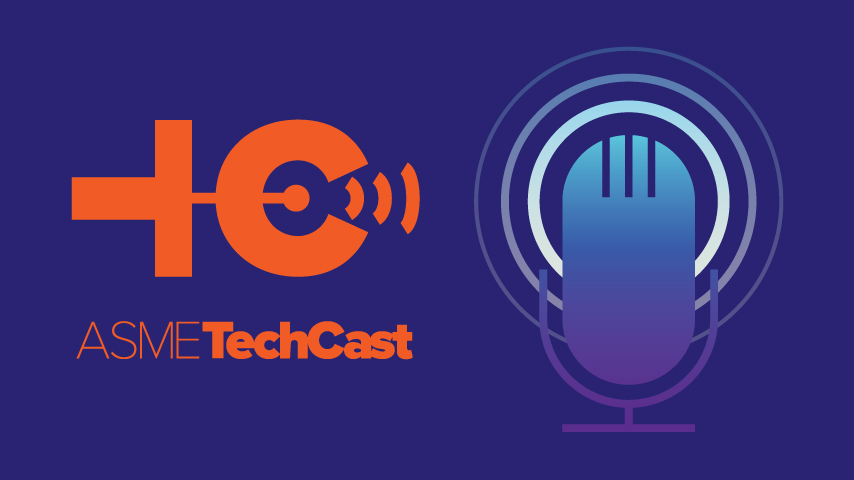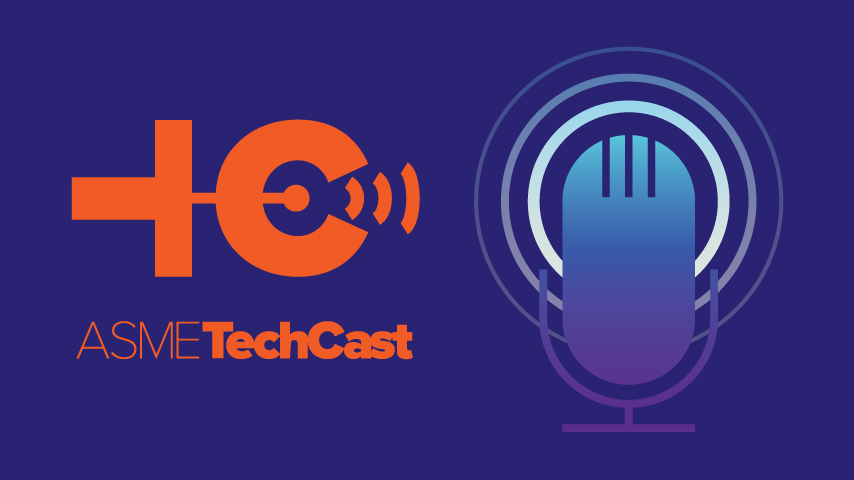Recruit, Retain, and Train Young Professional Engineers
Recruit, Retain, and Train Young Professional Engineers


Mechanical engineer, author, speaker, and trainer, Tim Griffin, executive vice president of RMF Engineering discusses how firms can recruit, retain, and train young professional engineers.
Mechanical engineers work across a wide range of industries. But professional services firms have the distinction of being the organizations that employ the highest concentration of MEs. Across U.S. architecture and engineering firms, on average, 4 percent of staffers are mechanical engineers. According to the most recent U.S. Bureau of Labor Statistics (BLS) data, almost 60,000 MEs work for firms at an annual mean wage of nearly $105,000.
Working within this environment is Tim Griffin, the executive vice president of RMF Engineering in Raleigh-Durham, N.C. This engineer, author, speaker, and trainer understands the competitiveness of finding, keeping, and training new engineers in his role of overseeing several production divisions, the firm’s corporate marketing team, and the internal Leadership Development University.
Q: Gen Z is accused of being lazy and entitled. What do you see as the situation with the latest generation of young engineering professionals?
TG: Back in 2007, I was hearing from principals across North America. They were so frustrated with the people coming out of college. They came to be known as millennials. I was perplexed because the team I was leading was really thriving. They were all millennials and I was having tremendous success.
So Gen Z is the same. Like any generation, there are superstars and there are duds. And what happens is that we tend to get fixated on the duds. They get all the press. They make all the noise. And we write off the whole generation.
Gen Z has some of the most educated and talented people that I have seen. And there are some strengths in that generation that are amazing. Now, what has happened? The pandemic was very impactful on that specific generation in a way that is difficult for millennials or any other generation to understand because we didn’t go through a similar event.
Q: We see millennials on the cusp of being firm leaders or in leadership roles. You have clients who are millennials. Is there a strategy you use for dealing with boomers, Gen X, millennials, or Gen Z?
TG: There are similarities between Gen X and Gen Z because Gen X is the parents of Gen Z. They are both small generations sandwiched between big generations. With boomers and millennials, the feeling was that everything was going to be great, and you can do whatever you want to do, and it’s going to work out.
Gen Z went in the opposite direction. When thinking about a college degree, for example, it’s about ROI where taking on debt and not worrying about it is not their thing. I like that about this generation. And maybe it’s because I'm from Gen X. I think they’re more practical.
Q: So what are some of the tactics that you’ve seen work with Gen Z?
TG: My focus is not on the whole generation, but the best of the generation. So I look for the people who I want working with me. Those who have the right talents and skill sets. The young people who want to come in and want to stay. What is it that they want?
Mechanical engineers are very much a subset of the overall generation. This is because it’s still very difficult—more difficult to become an engineer than when I got into college. To get into a good engineering program is still very difficult. And to get through the program is difficult. So the ones that do that, that are coming to work for us, have already self-selected to some degree. They are the best of them. They want to get in, roll up their sleeves, and do real work right away.
The idea of young engineers getting coffee, drafting, and picking up red lines is a turn-off. They are talented. They are skilled. And I found this with millennials, too. They have the ability to take on meaningful and challenging assignments earlier than we would have expected 20 or 30 years ago. We can load them up with more meaningful work early on. They also want training and to feel like they are advancing in their careers. The good ones want to know they have a career path with you.
I once had a millennial come into my office, and he said, “Hey. I’m leaving.” And I was like, “Why?” He explained that he didn’t have a career opportunity at the firm. I was like, “Oh, gosh! I could think of 10.” The problem was that these opportunities were very obvious to me, but that didn’t mean they were obvious to him. So I always tell leaders that when you’re working with young stars, number one, you’ve got to make sure they have a clear growth opportunity.
Which means that firm leaders must ensure that the organization is growing. If your firm is static or shrinking, it gets very difficult to present opportunities to young engineers. But if you are growing at least 7 percent or 8 percent a year, you can make this happen.
Q: How do you recruit young engineers?
TG: We have a super-secret plan that works really well. It’s called a co-op program. So we go out and recruit young people in their sophomore or early junior year to come in and intern with us. So they come in and work. We let them come in and experience it.
I was talking to a young electrical co-op just about two weeks ago. And it was his second time back with us. And I asked him how he was doing. And he just lit up. He said, “Oh, I love it.” He explained, “I’m getting to do real work. I'm excited, and I don’t graduate for another year, but they’re already talking about getting me a full-time offer.” And I can tell these young people don’t want to have to think about working in another place. They found their place.
Q: Culture must be part of it. Growing yes, but what about the work?
TG: There’s nothing like it if you’ve got a good culture. And you want your culture to be very definitive, too, because you want it to spit out the wrong person as well. It’s not about keeping everybody. It’s about keeping the people who are the right fit. And that approach has served us well.
We never hire somebody right out of school who has not interned with us. We try to hire more interns than we know we’re going to need. Now, sometimes we have to fill gaps with more experienced people, and that’s more challenging. But those are coming from different generations anyway.
Discover the Benefits of ASME Membership
We went to “Work from Home Wednesdays” back during the pandemic and have kind of stayed there. And it has worked well for us. On Wednesdays you get some focus time. The challenge with that, though, is making sure the co-ops and the interns have work to do back in the office on Wednesdays. Managers need to make sure they can get their questions answered. And they're being productive.
I found that there’s no right or wrong answer when it comes to working remotely. But based on the collaborative nature of our business, we certainly found an advantage in making connections in the office. There is a need for connection, specifically among Gen Z. That’s really hard to accomplish, especially if you are fully remote. Having people in the office creates those moments where they can connect and build those friendships.
Cathy Cecere is membership content program manager.
Working within this environment is Tim Griffin, the executive vice president of RMF Engineering in Raleigh-Durham, N.C. This engineer, author, speaker, and trainer understands the competitiveness of finding, keeping, and training new engineers in his role of overseeing several production divisions, the firm’s corporate marketing team, and the internal Leadership Development University.
Q: Gen Z is accused of being lazy and entitled. What do you see as the situation with the latest generation of young engineering professionals?
TG: Back in 2007, I was hearing from principals across North America. They were so frustrated with the people coming out of college. They came to be known as millennials. I was perplexed because the team I was leading was really thriving. They were all millennials and I was having tremendous success.
So Gen Z is the same. Like any generation, there are superstars and there are duds. And what happens is that we tend to get fixated on the duds. They get all the press. They make all the noise. And we write off the whole generation.
Gen Z has some of the most educated and talented people that I have seen. And there are some strengths in that generation that are amazing. Now, what has happened? The pandemic was very impactful on that specific generation in a way that is difficult for millennials or any other generation to understand because we didn’t go through a similar event.
Q: We see millennials on the cusp of being firm leaders or in leadership roles. You have clients who are millennials. Is there a strategy you use for dealing with boomers, Gen X, millennials, or Gen Z?
TG: There are similarities between Gen X and Gen Z because Gen X is the parents of Gen Z. They are both small generations sandwiched between big generations. With boomers and millennials, the feeling was that everything was going to be great, and you can do whatever you want to do, and it’s going to work out.
Gen Z went in the opposite direction. When thinking about a college degree, for example, it’s about ROI where taking on debt and not worrying about it is not their thing. I like that about this generation. And maybe it’s because I'm from Gen X. I think they’re more practical.
Q: So what are some of the tactics that you’ve seen work with Gen Z?
TG: My focus is not on the whole generation, but the best of the generation. So I look for the people who I want working with me. Those who have the right talents and skill sets. The young people who want to come in and want to stay. What is it that they want?
Mechanical engineers are very much a subset of the overall generation. This is because it’s still very difficult—more difficult to become an engineer than when I got into college. To get into a good engineering program is still very difficult. And to get through the program is difficult. So the ones that do that, that are coming to work for us, have already self-selected to some degree. They are the best of them. They want to get in, roll up their sleeves, and do real work right away.
The idea of young engineers getting coffee, drafting, and picking up red lines is a turn-off. They are talented. They are skilled. And I found this with millennials, too. They have the ability to take on meaningful and challenging assignments earlier than we would have expected 20 or 30 years ago. We can load them up with more meaningful work early on. They also want training and to feel like they are advancing in their careers. The good ones want to know they have a career path with you.
I once had a millennial come into my office, and he said, “Hey. I’m leaving.” And I was like, “Why?” He explained that he didn’t have a career opportunity at the firm. I was like, “Oh, gosh! I could think of 10.” The problem was that these opportunities were very obvious to me, but that didn’t mean they were obvious to him. So I always tell leaders that when you’re working with young stars, number one, you’ve got to make sure they have a clear growth opportunity.
Which means that firm leaders must ensure that the organization is growing. If your firm is static or shrinking, it gets very difficult to present opportunities to young engineers. But if you are growing at least 7 percent or 8 percent a year, you can make this happen.
Q: How do you recruit young engineers?
TG: We have a super-secret plan that works really well. It’s called a co-op program. So we go out and recruit young people in their sophomore or early junior year to come in and intern with us. So they come in and work. We let them come in and experience it.
I was talking to a young electrical co-op just about two weeks ago. And it was his second time back with us. And I asked him how he was doing. And he just lit up. He said, “Oh, I love it.” He explained, “I’m getting to do real work. I'm excited, and I don’t graduate for another year, but they’re already talking about getting me a full-time offer.” And I can tell these young people don’t want to have to think about working in another place. They found their place.
Q: Culture must be part of it. Growing yes, but what about the work?
TG: There’s nothing like it if you’ve got a good culture. And you want your culture to be very definitive, too, because you want it to spit out the wrong person as well. It’s not about keeping everybody. It’s about keeping the people who are the right fit. And that approach has served us well.
We never hire somebody right out of school who has not interned with us. We try to hire more interns than we know we’re going to need. Now, sometimes we have to fill gaps with more experienced people, and that’s more challenging. But those are coming from different generations anyway.
Discover the Benefits of ASME Membership
We went to “Work from Home Wednesdays” back during the pandemic and have kind of stayed there. And it has worked well for us. On Wednesdays you get some focus time. The challenge with that, though, is making sure the co-ops and the interns have work to do back in the office on Wednesdays. Managers need to make sure they can get their questions answered. And they're being productive.
I found that there’s no right or wrong answer when it comes to working remotely. But based on the collaborative nature of our business, we certainly found an advantage in making connections in the office. There is a need for connection, specifically among Gen Z. That’s really hard to accomplish, especially if you are fully remote. Having people in the office creates those moments where they can connect and build those friendships.
Cathy Cecere is membership content program manager.





